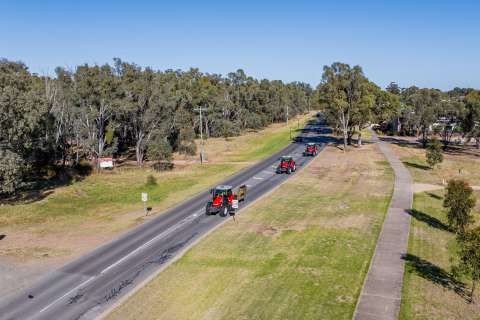
(CRA2030) Alliance of Peak bodies is kickstarting national action towards a low carbon and climate resilient future with its and two new climate action projects.
CRA2030 is the flagship project of the Griffith University Climate Action Beacon’s (CRI), and the project works in partnership with an Alliance of Peak bodies from a cross-section of industry and associations to deliver climate ready projects and solutions.
The CRA2030 Shared Agenda is a strategic framework for national climate action that was finalised at a February roundtable after months of consultation between CRI and the Alliance of Peaks. The first agenda action areas are now being operationalised.
The Alliance of Peaks selected its two initial priority areas for project development, to help enable a sufficient long-term policy framework to facilitate national climate action, and to enable clear and consistent tracking and reporting of emissions to deliver comparable data.
The Alliance of Peaks is now scoping projects that fill gaps and add value in these interlinked spaces.
Terri Butler, a member of the CRI Advisory Board, said: “We recognise that there are organisations, individuals, and governments, across the country, and globally, working on these or similar challenges. The Alliance of Peaks can add value to that work in many ways, including by leveraging relationships across a broad variety of organisations and those organisations’ members.”
Climate policies traverse a wide variety of sectors and issues and include policies on emissions reduction, climate adaptation, sector transition, climate risk management, disaster management, and reporting and disclosure. There is a lot to navigate, so the Alliance of Peaks aims to unpack the contents of the national climate policy landscape and to determine the group’s collaborative opportunities towards enabling action within the existing framework.
Understanding how to track their emissions efficiently is also high on the action agenda, as both mandatory and voluntary emissions reporting becomes critical for business operators who seek to remain competitive in local and global markets.
This need has been escalated by a federal commitment to strengthen climate risk reporting, including the , which incorporate emissions disclosures.
The Alliance of Peaks projects will work to support organisations and businesses in Australia to overcome the barriers to emissions tracking and reporting by consolidating tools and processes, sharing credible sources of information across sectors, and identifying gaps and needs for targeted action.
Ecotourism Australia is one of the ten peak bodies on the CRA 2030 Alliance of Peaks that wants to help its members and the wider tourism industry embrace sustainable management practice.
“Good sustainable businesses ultimately need more support across the industry and commitment from government to support affordable, accessible and credible carbon calculation tools that will help tourism operators and the broader business community to enable them to measure and monitor emissions,” Ecotourism Australia CEO Elissa Keenan said.
For Griffith University researchers working in climate policy and/or emissions tracking, reporting, or accounting who would like to be involved or connected with potential industry partners, please contact the CRA2030 Project Manager, Helen Elliott,








